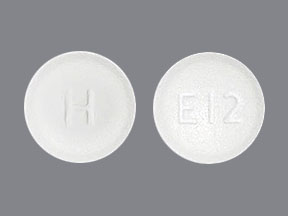
Promacta Coupons & Savings Card – Discount Prices from $2760.53
Brand for: Eltrombopag
My prescription
Edit
50MG, Eltrombopag (30 Tablets)
Select pharmacy

CVS
$12774.01
COUPON PRICE
Albertsons
$2760.53
COUPON PRICE
Walgreens
$3325.26
COUPON PRICE
Walmart
$13768.66
COUPON PRICEPromacta savings card
Show this card to your pharmacist
Albertsons
$2760.53
BIN
ID
PCN
GRP
019876
LH4815A208
CHIPPO
LHX
Powered by
Related thrombopoiesis stimulating agents prescriptions
More prescriptions for thrombocytopenia
Related thrombopoiesis stimulating agents prescriptions
More prescriptions for thrombocytopenia
Price history for Promacta (brand) & Eltrombopag (generic)
30 Tablets, 50MG
Average retail price for Promacta
Average retail price for Eltrombopag
Average SaveHealth price for Eltrombopag
Our price history data is based on aggregated prescription data collected from participating pharmacies in America. Our prescription data updates daily to reflect the latest price changes. If you notice a missing data point, it means there wasn't sufficient data available to generate a monetary value for that date.
Over the last 12 months, the average discount price of Promacta is $7962.87 using the SaveHealth savings card. That's an average savings of 68.78% on Promacta with our discount card.
*Retail prices are based on pharmacy claims data, and may not be accurate when we don't have enough claims.
Promacta (Eltrombopag) dosage forms
Dosage Quantity Price from Per unit 12.5MG 30 Tablets $1528.78 $50.96 25MG 30 Tablets $1528.78 $50.96 50MG 30 Tablets $2760.53 $92.02 75MG 30 Tablets $4137.05 $137.90
| Dosage | Quantity | Price from | Per unit |
|---|---|---|---|
| 12.5MG | 30 Tablets | $1528.78 | $50.96 |
| 25MG | 30 Tablets | $1528.78 | $50.96 |
| 50MG | 30 Tablets | $2760.53 | $92.02 |
| 75MG | 30 Tablets | $4137.05 | $137.90 |
What is the drug Promacta used for?
Promacta is used to treat certain conditions that lead to low platelet counts, such as chronic immune thrombocytopenia (ITP), chronic hepatitis C-associated thrombocytopenia, and severe aplastic anemia. It helps increase platelet production to reduce the risk of bleeding.
Is Promacta a chemo drug?
Promacta is not a chemotherapy drug. It is a medication used to treat low blood platelet counts in certain conditions, such as chronic immune thrombocytopenia (ITP), chronic hepatitis C-associated thrombocytopenia, and severe aplastic anemia. It works by stimulating the production of platelets in the bone marrow.
Why is Promacta so expensive?
The cost of Promacta can be attributed to several factors. These include the research and development expenses involved in bringing the drug to market, the costs associated with clinical trials, and the regulatory approval process. Additionally, Promacta is a specialized medication used to treat specific conditions, which can contribute to its higher price. Manufacturing costs, distribution, and the pricing strategies of pharmaceutical companies also play a role in the overall expense of the medication.
What is an alternative for Promacta?
An alternative to Promacta (eltrombopag) could be Nplate (romiplostim), which is another thrombopoietin receptor agonist used to treat certain conditions like chronic immune thrombocytopenia (ITP). However, the choice of medication should be determined by a healthcare provider based on the patient's specific condition and medical history.
Does Medicare pay for Promacta?
Medicare may cover Promacta under certain conditions. If Promacta is prescribed for an FDA-approved indication, it might be covered under Medicare Part D, which is the prescription drug plan. However, coverage can vary based on the specific plan, and prior authorization or step therapy might be required. It is advisable for individuals to check with their specific Medicare Part D plan provider to confirm coverage details and any associated costs.
